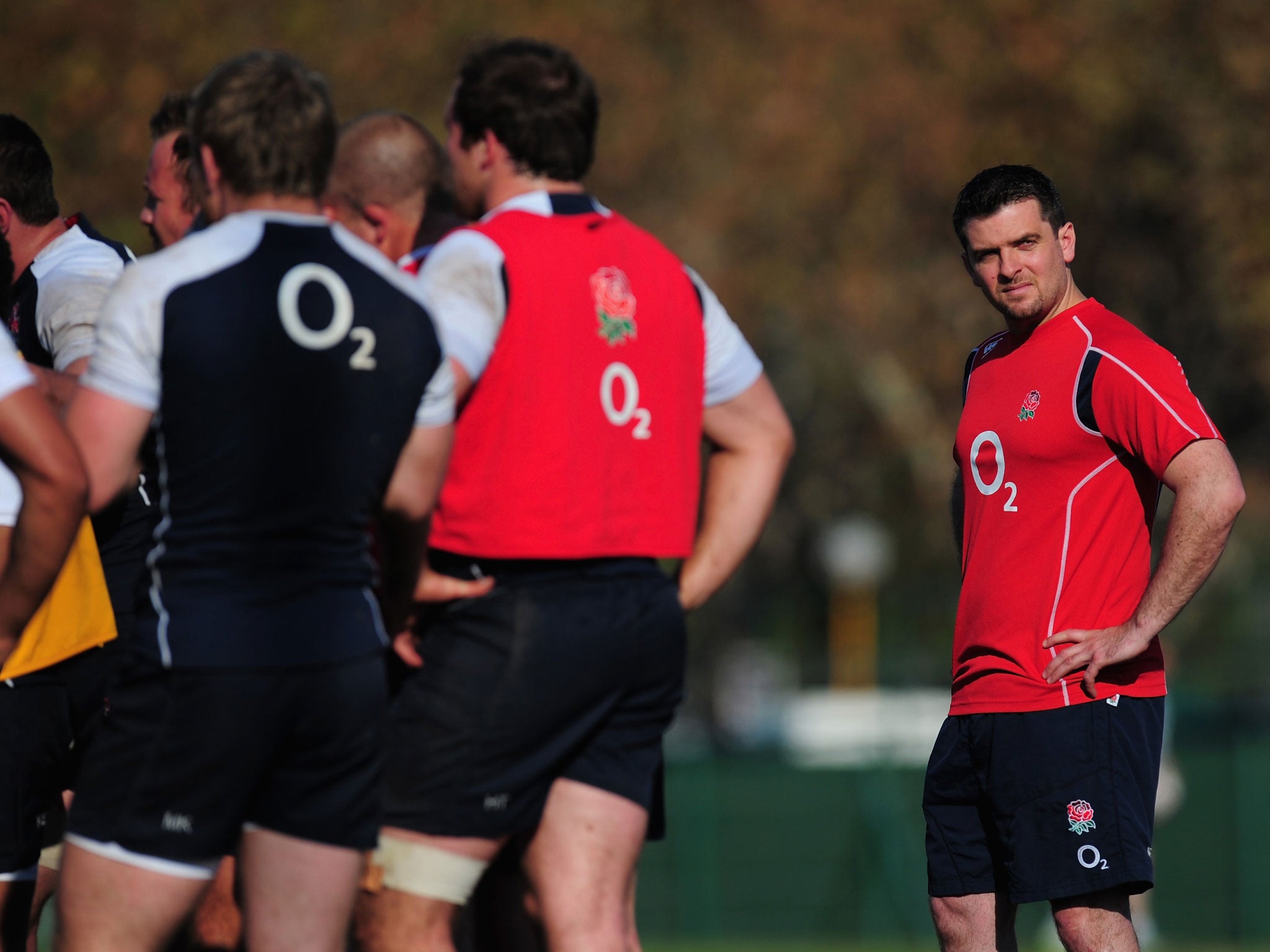Six Nations Championship: ‘Mr Marginal Gains’ gears up England’s game

Your support helps us to tell the story
From reproductive rights to climate change to Big Tech, The Independent is on the ground when the story is developing. Whether it's investigating the financials of Elon Musk's pro-Trump PAC or producing our latest documentary, 'The A Word', which shines a light on the American women fighting for reproductive rights, we know how important it is to parse out the facts from the messaging.
At such a critical moment in US history, we need reporters on the ground. Your donation allows us to keep sending journalists to speak to both sides of the story.
The Independent is trusted by Americans across the entire political spectrum. And unlike many other quality news outlets, we choose not to lock Americans out of our reporting and analysis with paywalls. We believe quality journalism should be available to everyone, paid for by those who can afford it.
Your support makes all the difference.There are plenty of people out there who look at the way the All Blacks are playing – not to mention the way the Springboks have added a sprinkling of panache to their power game – and reach the conclusion that England cannot possibly win their home World Cup next year without a miracle.
Maybe two miracles. Matt Parker does not believe in the paranormal. British sport’s high priest of “marginal gains” deals in evidence-based reality rather than mystery and in his opinion there has been enough measurable improvement in the red-rose squad over the last year or so to suggest that a recapturing of the Webb Ellis Trophy is possible.
It is exactly a year since Parker joined the rugger-buggers at Twickenham from Dave Brailsford’s stunningly successful Olympic cycling set-up and his ideas are beginning to take shape, in a number of contrasting ways. As head of a 16-man high-performance team boasting experts in a range of disciplines, from medicine and psychology to nutrition and analysis, he has formulated a detailed build-up plan running all the way through to the start of the global tournament in a little under 20 months’ time. He is also a key figure in the construction of a swanky new “centre for athletic development” in the grounds of the England country hotel team base outside Bagshot. The cost? Parker is vague, but we are talking a substantial seven-figure sum.
The 38-year-old physiology graduate from Staffordshire rarely puts his head above the parapet and when he does, he prefers to keep his brightest ideas to himself. “People ask me what I do,” he says with a soft smile. “What I don’t do is look for magic formulas, because there aren’t any. It’s not often that anyone working in this field finds one thing capable of giving you that 10-15 per cent improvement in performance. Dick Fosbury did it in the high jump back in ’68; McLaren did it in motor racing. But it’s very rare. And if you just search for the big leap forward, the silver bullet, it’s easy to miss the important day-to-day detail.
“So it’s not a case of me taking a formula from cycling and applying it to rugby. For one thing, there are more variables in this game; for another, what I found when I arrived was further advanced that I’d expected. There are a lot of people doing a lot of good work in rugby. What we have here is the challenge of delivering a big piece of work under pressure of time – when we get to next September, there’ll be no asking for one more day of preparation – so it’s my job to innovate responsibly in order to maximise the talent, hard work and commitment of the players. Basically, we want them running out there at the World Cup confident in their ability to deliver.”
Interestingly, Parker sees obvious similarities between Stuart Lancaster, his new boss, and Brailsford, his old one. “They’re both very strong leaders,” he says. “Stuart has a very clear sense of direction: he knows what he wants and when I look at what he has instilled in this England group, it feels to me like a high-performance culture.
“I have no rugby background – my sporting interest initially was track and field, with a bit of football thrown in – but equally, I came into this group with no preconceptions. It was a challenge I felt I couldn’t turn down because you don’t get many opportunities to be involved in something as big as a home World Cup, and I’m glad I’ve taken it on. There’s a great sense of family among the people here, some deep bonds.”
Not every World Cup team will have a Parker-style high performance unit behind them: the Pacific Islands sides will be lucky if their kit turns up at the right ground on match day. But England’s operation has its flip side in the form of heightened expectation, and the back-room staff know it. Happily, Parker is entirely comfortable with the level of scrutiny. “The pursuit of high performance is relentless,” he says, “and if we want to be smarter and faster than the opposition, we’ll have to work for it. That’s why I’m here.”
Join our commenting forum
Join thought-provoking conversations, follow other Independent readers and see their replies
Comments